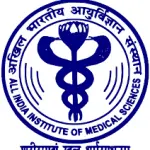Overview
Jawaharlal Nehru dreamt of a India inspired by a scientific culture and that dream encompassed an institute that could speed up the medical education and research scenario in Southeast Asia. With the full support of his then Health Minister Rajkumari Amrit Kaur, recommendations of the Bhore Committee and a bountiful grant from New Zealand, the foundation stone for AIIMS was laid in 1952 and was created as an autonomous institute through an Act of Parliament in 1956.
Academic Performance
An institution of national importance was established with an objective of developing teaching patterns in medical education at undergraduate and post-graduate levels to demonstrate a very high quality and standard of medical education in India.
The Institute offers comprehensive facilities for research, teaching and patient-care. As per the Act, AIIMS offers medical and para-medical courses at both undergraduate and post-graduate levels, awarding its own degrees. AIIMS also has a College of Nursing where students are trained for B.Sc.(Hons.) Nursing and certificate degrees in Nursing.
All types of diseases and conditions are managed by twenty-five clinical departments which include four super-speciality centres along with the pre-clinical and para-clinical departments. However, infectious diseases, burn patients and cases of dog-bites are not entertained in the hospital. AIIMS manages a hospital with 60 beds in the Comprehensive Rural Health Centre at Ballabgarh in Haryana and around 2.5 lakh people get health cover from AIIMS through the Centre for Community Medicine there.
Research & Development
AIIMS leads with 42 disciplines of medical research, with more than 600 publications in a year. While they are doing sophisticated research on computer simulation of hormone-receptor interaction and in neurosciences and in genetics, they are also trying to take up clinical and epidemiological research on prevention and cure of national health hazards. Common diseases in India like leprosy, malaria, diarrhea, tuberculosis, hepatitis, diabetes and fluorosis are being exposed to advanced techniques like DNA recombinant technology, immunology and electron microscopy. Goals oriented studies in reproduction is funded internationally.
Notable Alumni
Padma Bhushan Dr. Panangipalli Venugopal regarded as a pioneer in Cardiac surgery in India did his MBBS, MS and MCh from AIIMS, New Delhi. Recipient of Dr. B.C. Roy award, the highest recognition for medical practitioners in India, neurosurgeon Dr. B.K. Mishra did his MCh in Neurosurgery from AIIMS, New Delhi. Padma Bhushan Dr.Ramakanta Panda credited to have introduced “total arterial revascularisation” in India did his post-graduation in surgery and heart surgery from AIIMS, New Delhi.Dr.Amita Aggarwal with MBBS and MD degrees and Dr. Rakesh Aggarwal with MBBS degree from AIIMS, New Delhi went on to receive the N-Bios prize in 2004 and 2002 respectively. Dr. Satyanarayana Srikanta, having completed his MD in internal medicine from AIIMS, New Delhi, he went on to become a faculty at Harvard Medical School and Clinical Investigator at National Institute of Health, USA at the young age of 29 years. Co-founder of Unacademy, MBBS from AIIMS, New Delhi, Dr. Roman Saini has made it to the headlines first for being the youngest candidate ever to have cracked NEET UG (AIIMS) at the age of 16. At the age of 22, he went on to become the youngest candidate in India to have cleared UPSC CSE by securing AIR 18 in 2013.

